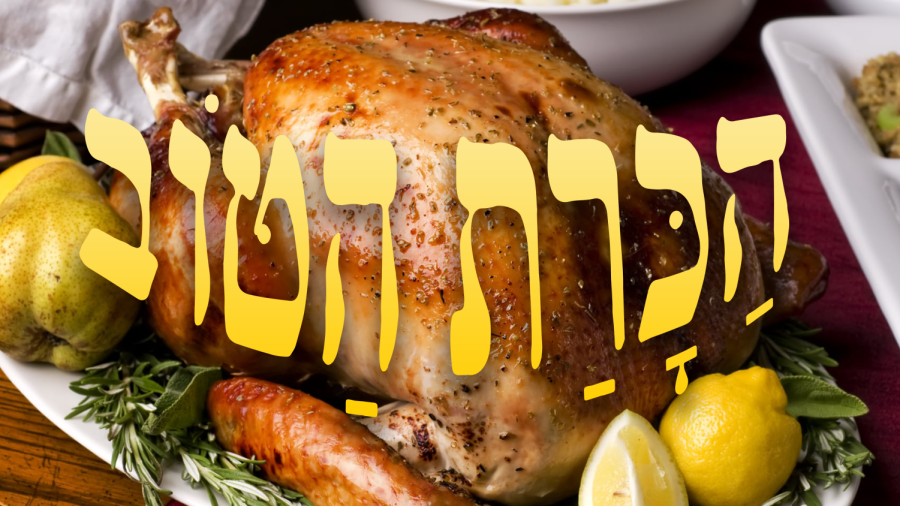The Halachot behind Thanksgiving
October 12, 2021
Hakarat hatov, or giving thanks, is an intrinsic value of Judaism. Despite this sentiment, uncertainty about celebrating arises when it comes to the Thanksgiving holiday, a holiday that ostensibly aligns with this core value of Judaism.
In Vayikra 18:3, the pasuk, or sentence, reads, “uvechukoteihem lo teileichu,” meaning “you shall not walk in [the gentiles’] ways.” The Shulchan Aruch, a compilation of Jewish laws and traditions, explains that this pasuk prohibits Jewish assimilation into secular culture, such as with clothing or haircuts. In Masechet Avodah Zara 13a, Tosafot divides the prohibition into two categories: the first category includes customs that are rooted in Avodah Zara, idolatry; the other, in irrational secular practices and activities.
The Maharik says there are 2 categories: immodest practices like wearing types of clothing and customs which have no known or rational reason so there is a concern that it stems from idolatry. Therefore, as long as there is a reason for the practice of the secular custom, it would be halachically permissible. The Vilna Gaon disagrees and states that even customs which have a known reason, if performed in order to emulate the secular styles, then even if there is a good reason, it would still be a violation of “uvechukoteihem lo teileichu,”.
The question of the halachic legitimacy of observing Thanksgiving revolves around its classification as either a non-Jewish custom or a religious holiday. While there is no religious practice associated with Thanksgiving nowadays, the Pilgrims still thanked God. Rav Moshe Feinstein considers the holiday to be non-religious and allows observing Thanksgiving only if the nature of the observance is considered optional as opposed to obligatory. Contrarily, Rav Yosef Dov Soloveitchik considers Thanksgiving to be merely a day devoted to giving gratitude and not Avodah Zara and thus permits all practices such as consuming Turkey.
However, some poskim, Halachic deciders, such as Rav Avigdor Miller and Rav Yitzchak Hutner, view the holiday as a gentile holiday associated with idolatry because it is annually observed based on the Christian calendar. Others, such as Rav David Cohen, write that according to Tosafot, it would be prohibited for a Jew to consume turkey solely as a celebration in the spirit of Thanksgiving. Interestingly, he notes that while it is not preferable, one may consume turkey because one enjoys it and not due to the symbolism of the day.
The classification of Thanksgiving as a custom or holiday and its subsequent status in halacha remains a multifaceted machloket, a disagreement between Gedolei Yisroel.








Yitzy Frankel • Nov 10, 2021 at 4:47 pm
The next Gadol Hador!
Noam Goldberg • Nov 10, 2021 at 4:22 pm
I personally love to celebrate thanksgiving and find it a uplifting experience. Thanksgiving is really an outlet for me and my family. Thanksgiving is a stone that keeps my Judaism standing strong.